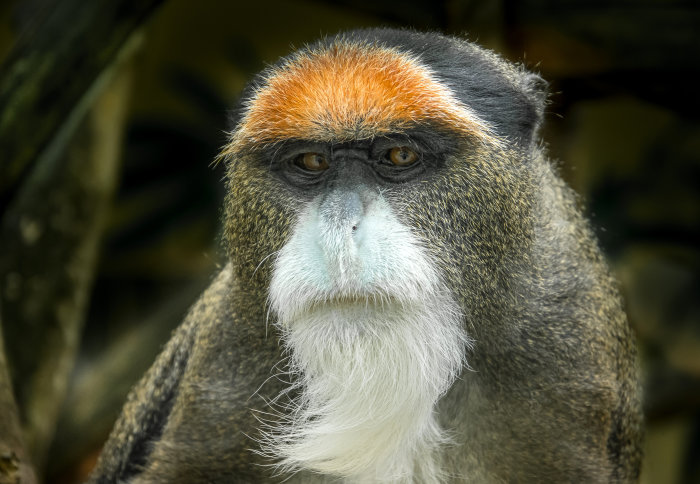Trading wild specimens and creating new lasers: News from the College

De Brazza's monkey (Image: Lubos Houska)
Here’s a batch of fresh news and announcements from across Imperial.
From Imperial supporting the responsible trade of wild animal and plant specimens, to researchers fabricating a new kind of laser, here is some quick-read news from across the College.
Trading wild specimens
Imperial College London has just become a registered institution with CITES – the Convention on International Trade in Endangered Species of Wild Fauna and Flora, which will help accelerate research on the conservation of threatened animal and plant species.
CITES an international agreement between governments that aims to ensure that international trade in specimens of wild animals and plants does not threaten their survival.
The registration will make it much easier for Imperial researchers to move material between CITES-registered institutions for loans, donations and exchanges of legally obtained scientific specimens and samples, for which trade normally requires one-off CITES permits.
For more information, see the CITES register of scientific institutions or contact Professor Vincent Savolainen and Dr Alba Herraiz in Life Sciences.
(Images: CITES.org)
Alzheimer’s trial begins
 Could a drug prescribed to treat hyperactivity in children help to mitigate the harms of dementia? Researchers at Charing Cross Hospital are hoping it might.
Could a drug prescribed to treat hyperactivity in children help to mitigate the harms of dementia? Researchers at Charing Cross Hospital are hoping it might.
In an NIHR-funded study starting this month, a team at the Imperial Memory Unit will test if ADHD treatment Guanfacine can help to boost attention and memory in patients with Alzheimer’s disease.
Dr Paresh Malhotra, who is leading the study, says: “We are hoping that it will boost cognition when combined with standard Alzheimer’s treatment and could lead to a new approach in treating this extremely common and devastating disease.”
Summer school
Study London, the Mayor of London’s official university guide, has this week launched its first ever summer school competition to encourage more Chinese students to London.
As part of the London Summer Schools campaign, Imperial has provided a fully-funded place for one student on the Revolutions in Biomedicine Summer Programme (see video above).
Dr Sophie Rutschmann, Faculty of Medicine Academic Lead, said: “The Revolutions in Biomedicine Summer Programme gives a unique insight into the immersive research environment of our world-renowned Faculty of Medicine. This is a great opportunity to experience world-class education in the midst of one of the world’s great cities, and to start real growth as someone who will contribute to science.”
Imperial is the UK’s number one university collaborator with China and hosts 2,600 students and 225 staff from the country.
Harnessing disorder to create new lasers
 Conventional lasers use regular structures like fixed mirrors to confine and amplify light, minimising disorder as much as possible. However, if properly designed, disorder can be used to effectively trap light and create lasers.
Conventional lasers use regular structures like fixed mirrors to confine and amplify light, minimising disorder as much as possible. However, if properly designed, disorder can be used to effectively trap light and create lasers.
Now, researchers at Imperial have fabricated a new kind of laser, where light flows in a web of minuscule ‘waveguides’ and emerges as a laser in all directions and with many different colours. The team were able to make sense of this seeming disorder using network theory – the same concept that explains how information flows on the internet or how epidemics spread.
They are now testing strategies to control the lasers, so they could be integrated into next-generation lab-on-chip devices for sensing, or be used in future computer chips.
Read the full paper in Nature Communications.
–
Want to be kept up to date on news at Imperial?
Sign up for our free quick-read daily e-newsletter, Imperial Today.

Article text (excluding photos or graphics) © Imperial College London.
Photos and graphics subject to third party copyright used with permission or © Imperial College London.
Reporter
Andrew Youngson
Communications Division
Hayley Dunning
Communications Division
Ryan O'Hare
Communications Division
Murray MacKay
Communications Division
Mr Al McCartney
Faculty of Medicine Centre





